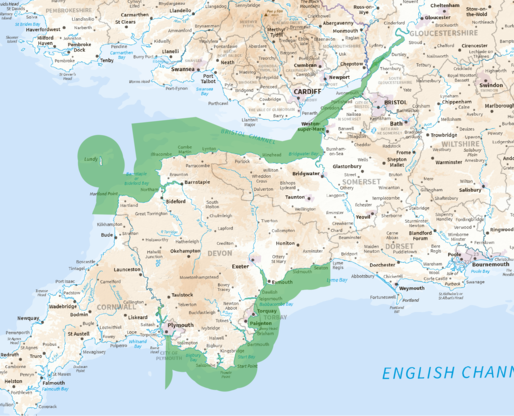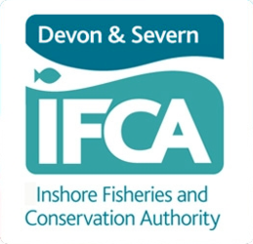Who we are & our core work
- Home
- About Us & Our Work
- Who we are & our core work
Page review/updated 04/12/2024
(content updated: 4th November 2024)
What is D&S IFCA and what does it do?
The Marine and Coastal Access Act 2009 (MaCAA) introduced a new framework for managing the marine environment and providing greater access to it. This Act of Parliament replaced Sea Fisheries Committees with Inshore Fisheries and Conservation Authorities (IFCA’s) and is fundamental to the work of D&S IFCA.
D&S IFCA’s Vision
“We believe in shared responsibility for the health and benefits of the marine environment and uphold our duties, now and in the future. We will be proactive in our management to restore and recover marine ecosystems, habitats, and species. We envisage that the waters, under our authority, will support sustainable fishing practices serving local, national, and international communities. We will innovate, and champion the use of technology, the delivery of low impact fisheries and the UK Government’s ‘Net Zero’ by 2050 carbon target. We embrace co-management and will drive change in inshore recreational and commercial fisheries, recognising their social and economic benefits, and securing a future for sustainable fishing in the coastal belt”.
The District
The D&S IFCA is the largest of the ten separate IFCA districts and has two separate coastlines. The area of the District is 4522km² and is defined in the Statutory Instrument (2010 No. 2212). The D&S IFCA District includes the areas of Devon and Severn (Devon County Council, Torbay Council, Plymouth City Council, Somerset Council, Gloucestershire County Council, Bristol City Council, North Somerset Council and South Gloucestershire Council) – and all adjacent waters out to six nautical miles offshore or the median line with Wales. The Latitude and Longitude positions of our district can be found in the Byelaw Book.

The Full Authority is comprised of 30 Members drawn from relevant Local Authorities (Councillors), General Members (appointed to the Authority by the Marine Management Organisation (MMO) and Statutory Appointees representing the Environment Agency (EA) and Natural England (NE).
Funding & Income 2024/2025
D&S IFCA is funded primarily from Central Government, with additional contributions from the eight relevant funding Local Authorities. D&S IFCA’s Revenue Budget for 2024/2025 has been set at £937,500. This is the lowest Revenue Budget of the nine mainland IFCAs. The base levy delivered by the funding Local Authorities had increased by 3% from £762,200 in 2023/24 to £785,066 in 2024/25. The levies on six of the funding Local Authorities are offset by the provision of £409,297 of New Burdens Funding (NBF) from Defra. However, due to Defra’s administration of NBF, D&S IFCA does not receive all of the funding. In 2024/2025 this reduces the net NBF to D&S IFCA to £372,463. The 2024/2025 Revenue Budget is balanced by the expected additional Defra funding of £150,000 to continue its deliver of three further national workstreams. In February 2024, after the Revenue Budget had been agreed for 2024/2025, Defra advised that the additional funding for 2023/2024 had been reduced from £150,000 to £140,000. Further in March 2024, Defra announced a further £10,000 reduction for 2024/2025 to £130,000. It is now very likely that at least another £30,000 will be required to be taken from Reserves to balance the Revenue Budgets for 2023/2024 and 2024/2025.
Staff – 2024/2025
D&S IFCA employs the fewest number of staff of any of the nine mainland IFCAs. D&S IFCA has fourteen Officers, which includes part-time Officers. The office is situated in Brixham, although Officers do also work from home.
Core Work Undertaken
The duties of D&S IFCA are set out in the Marine and Coastal Access Act 2009 (MaCAA)
Section 153 (Management of inshore fisheries) and Section 154 (Protection of marine conservation zones) underpin much of the work conducted by the Authority.
In meeting the main duties specified in MaCAA, the work of D&S IFCA is basically divided into different areas as follows:
ENFORCEMENT
These duties include enforcing the Byelaws (or permit conditions) implemented by D&S IFCA, which include restrictions introduced to protect Marine Protected Areas (MPA’s). In addition, D&S IFCA’s enforcement, Officers enforce EU and domestic fisheries legislation. The enforcement team currently have use of two separate Rigid Inflatable Boats (R.I.Bs) that are owned by D&S IFCA. On 20th June 2024 the Authority agreed to the sale of “Enforcer” patrol vessel. The remaining patrol vessel is an 7.8 metre vessel named the David Rowe to honour the memory of a former Authority Member. D&S IFCA works closely with other organisations such as other IFCAs, the Marine Management Organisation (MMO), the Environment Agency (EA) and the Boarder Force (BF) with which it shares the use of assets. D&S IFCA is committed to the use of new technologies for enforcement purposes, particularly remote technology.
RESEARCH
Research and survey work conducted by D&S IFCA informs evidence bases subsequently used to manage fishing activities via the introduction of local management measures that can include legislation in the form of Byelaws. D&S IFCA works in co-operation with other organisations to conduct research work and also takes environmental advice from Natural England (NE). D&S IFCA’s research and survey work (and external research and advice) also informs longer term management that can be achieved via the permitting byelaws that contain flexible permit conditions.
Byelaw Work(including ENGAGEMENT)
The Byelaw work is often a lengthy and complex process. It requires specialised skills and background knowledge. This Authority has created a Sub-Committee to conduct the byelaw work. The Byelaw and Permitting Sub-Committee is formed by a selection of Full Authority Members, each offering a different set of skills or background knowledge that is utilised to complete the required work. Officers prepare the material used by the Sub-Committee for their deliberations (meetings). The Byelaw and Permitting Sub-Committee have been given delegated powers for Byelaw work.
There are a number of legacy byelaws in place that were inherited from Devon Sea Fisheries Committee. All legacy byelaws must be reviewed. In addition to reviewing legacy measures, members of the Sub-Committee are also tasked with reviewing flexible permit conditions that can result in potential changes to the permits that are issued to fishers. The outcomes of the byelaw related work are documented in reports published on the website. Section F of D&S IFCA’s website Resource Library contains byelaw development reports and Impact Assessments (Byelaw Creation & Changes to Permit Conditions). Section B of the website Resource Library contains the minutes from B&PSC meetings.
All of the separate elements of the byelaw work are a team effort. Although the Officers prepare the majority of the material (reports) required for the process, the officers do not take decisions at any time. The byelaw work involves a lot of consultation and engagement work. D&S IFCA has a consultation website page and uses a range of communication initiatives for its engagement work.
To date D&S IFCA has introduced multiple management measures, including many relating to the protection of Marine Protected Areas (MPAs). Please see our Byelaw Status & Changes Guide.
